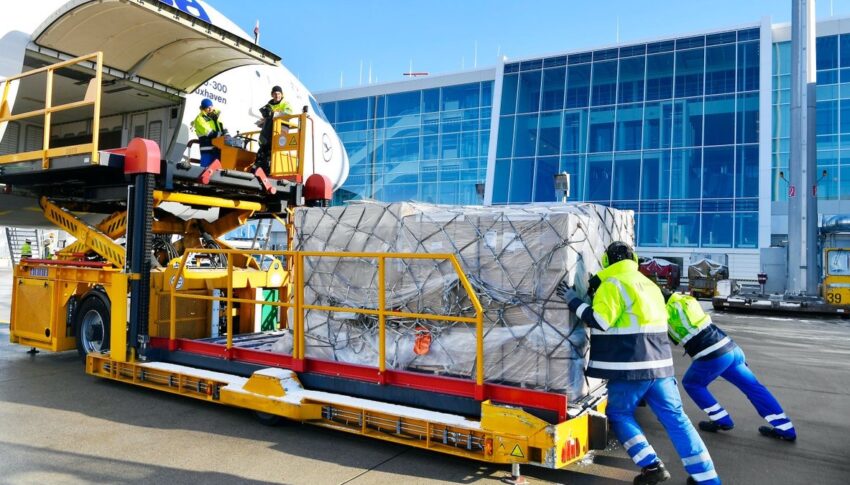Ground handling and the COVID acceleration
by John Walton
02-Mar-2021
From the airport kerb to the jetway, above and below the wing, ground handlers have been at the forefront of aviation during the COVID-19 crisis. But how has this crucial part of the industry been affected by what Alexandre Koenig, chief commercial officer at dnata Switzerland, calls “the biggest crisis we’ve ever seen in in aviation”?
Loss of sales and efficiency
A few alps away at Munich Airport, passenger handling subsidiary aerogate’s managing director Eva Ranki says that the company is handling only 10-20% of its pre-COVID-19 traffic. “Flight schedules are continuously changing at short notice and arrivals/departures are spread widely throughout the day,” she notes. “The effect is, on the one hand, the loss of sales, and on the other hand the loss of efficiency of the staff — so that contractually agreed prices are hardly covering the costs.”
At AeroGround, the ground-handling subsidiary of Munich Airport, which operates both there and in Berlin, “our handling volume has drastically dropped since March 2020,” says vice president sales, marketing and business development Axel Feil. “Our handling volume in 2020 reached only 30% compared to previous year’s volume, and in January 2021 the year-on-year decline was even almost 90%. This affects both landside and airside handling services equally.”
Dnata Switzerland’s Koenig gives similar year-on-year-figures for their ZRH and GVA operations.
Data checking challenges
The biggest challenge, Koenig says, has been document checking, particularly around ensuring that PCR and antigen tests required by certain countries are presented in ways acceptable to the travellers’ destinations. This is complicated enough for point-to-point flights, but “it’s a hub carrier, then you need to check the documents for 50 or 60 or 100 destinations that can be reached from the hub.”
Technology helps here, particularly the IATA Timatic system, but any lag in updating fast-changing regulations can have major impacts: in some cases, Koenig says, passengers had to undergo arrival testing, were placed in quarantine, or were even sent back to their point of origin.
Better management of resources
Responding to the wider crisis, aerogate’s Ranki says, “the most efficient measure to reduce costs and maintain service availability was the implementation of short-time work [the German Kurzarbeit furlough system] in order to receive compensation payments from the government to save jobs and to pay the staff who is presently not on duty. We haven’t yet outsourced or insourced any duties and we are not planning to do so.”
Aerogate is also using the time to increase cross-training of employees on airline IT/DCS systems and duties, which Ranki says increases flexibility, efficiency and allows for better staff planning.
In addition to the Kurzarbeit system, AeroGround has reduced its external bought-in services, instituted a freeze on hiring and position-filling, reduced overtime, and put in place a volunteer redundancy program. The company is also organising work around variable shift models, including staggering start/finish timing and varying shift lengths.
Accelerated adoption of new technologies
It’s also pushing hard towards digitalisation of its operations. “At the beginning of 2020, AeroGround introduced its own employee app which now serves as our primary in-house communication channel,” Axel Feil says. “More than 90% of the AeroGround employees are involved in operations and work shifts without access to a computer workstation. Now, in times of COVID-19, short-time work and home office are added to the mix, meaning that many employees are away from the airport for extended periods of time.”
The app means that the company can provide its employees with updates, including new guidance on ways of working during COVID-19, regardless of where they are located and in real time. AeroGround has also developed a custom duty scheduler, while the app enables employees to exchange information with each other, ask questions and post discussion topics.
However, with wider aviation spending freezes, aerogate’s Eva Ranki notes, comes a handbrake on some digitalisation projects. Munich Airport, she says, has put digitalisation projects on hold, meaning that “we have at present only limited automatic solutions” for passenger processing.
Fundamentally, though, the accelerated adoption of new technologies like videoconferencing, test-and-trace apps and vaccine passport functions during COVID-19 is likely to lead to more changes in terms of management processes, passengers’ acceptance of digital solutions, and how the industry does business.
Join the conversation
We’re talking about this in our industry challenges area – How will the accelerated adoption of new technologies during Covid-19 lead to innovations in ground handling and deeper acceptance of digital solutions?



